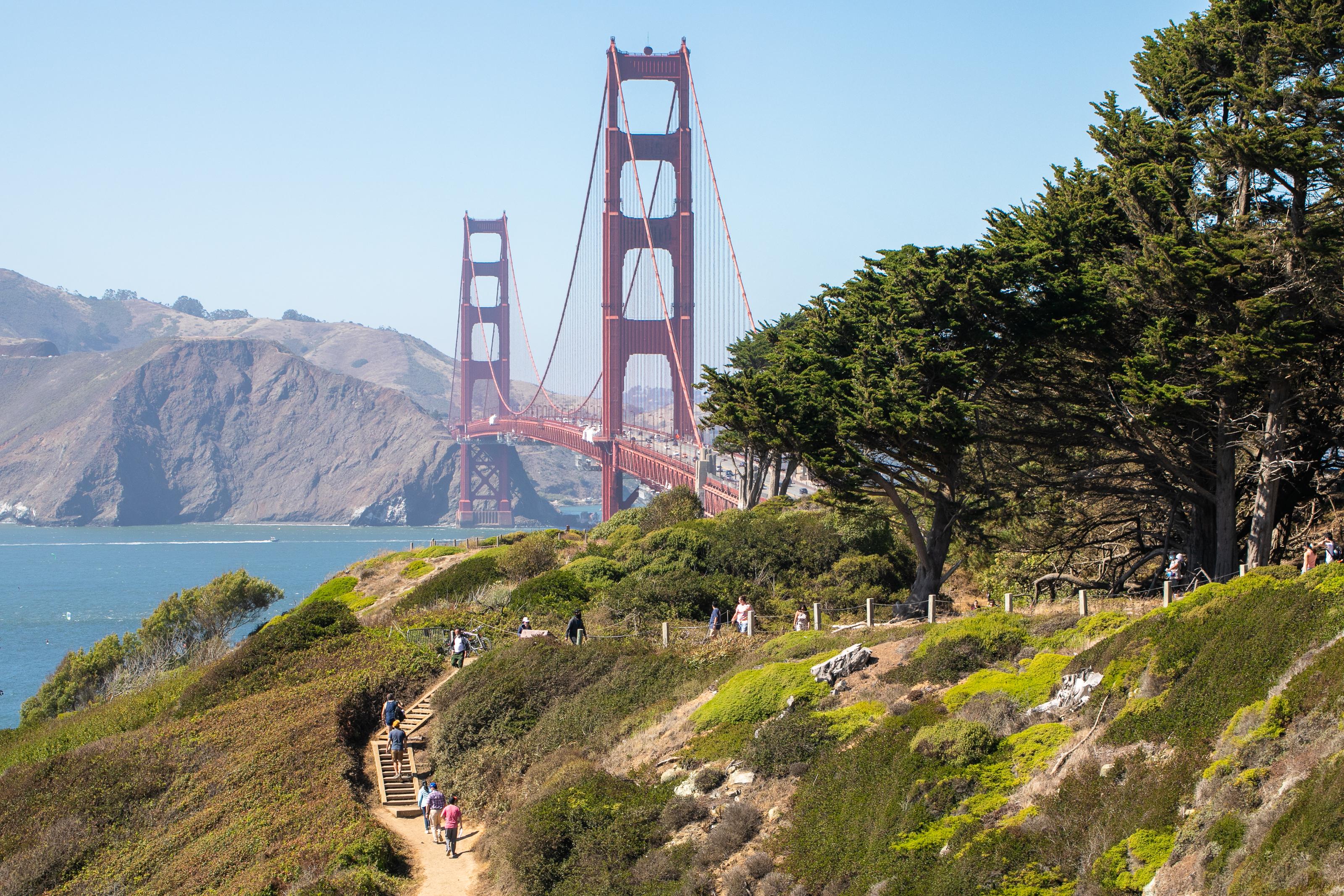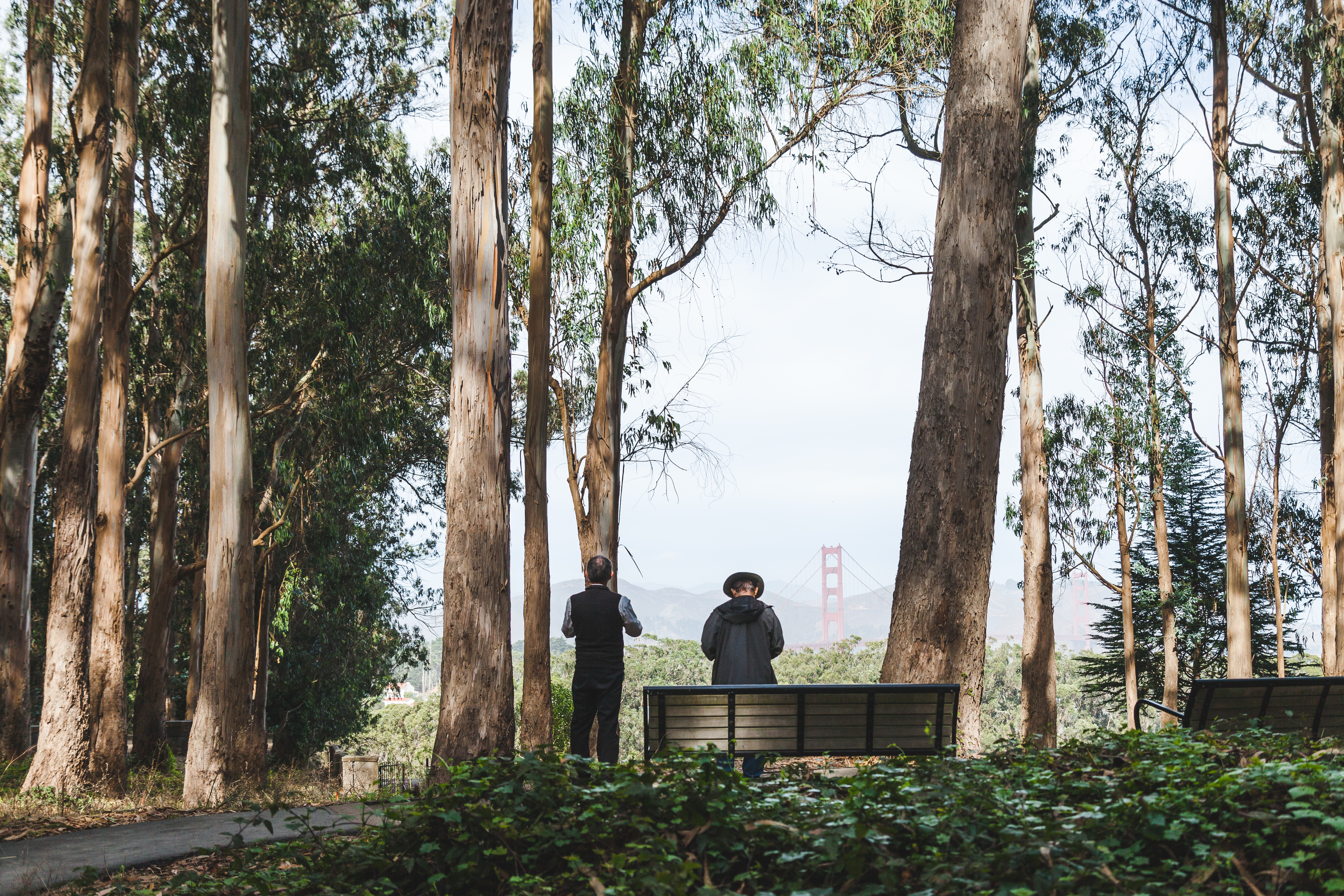Apr 12, 2024
Golden Gate Bridge Fun Facts
Learn about the famous span’s origins, design, size, movie history, and ways to enjoy it today.Discover little known facts about the Golden Gate Bridge, San Francisco’s most famous landmark.
After reading these frequently asked questions about the Golden Gate Bridge, visit our Golden Gate Bridge webpage for details on how to see it for yourself!
Where is the Golden Gate Bridge?
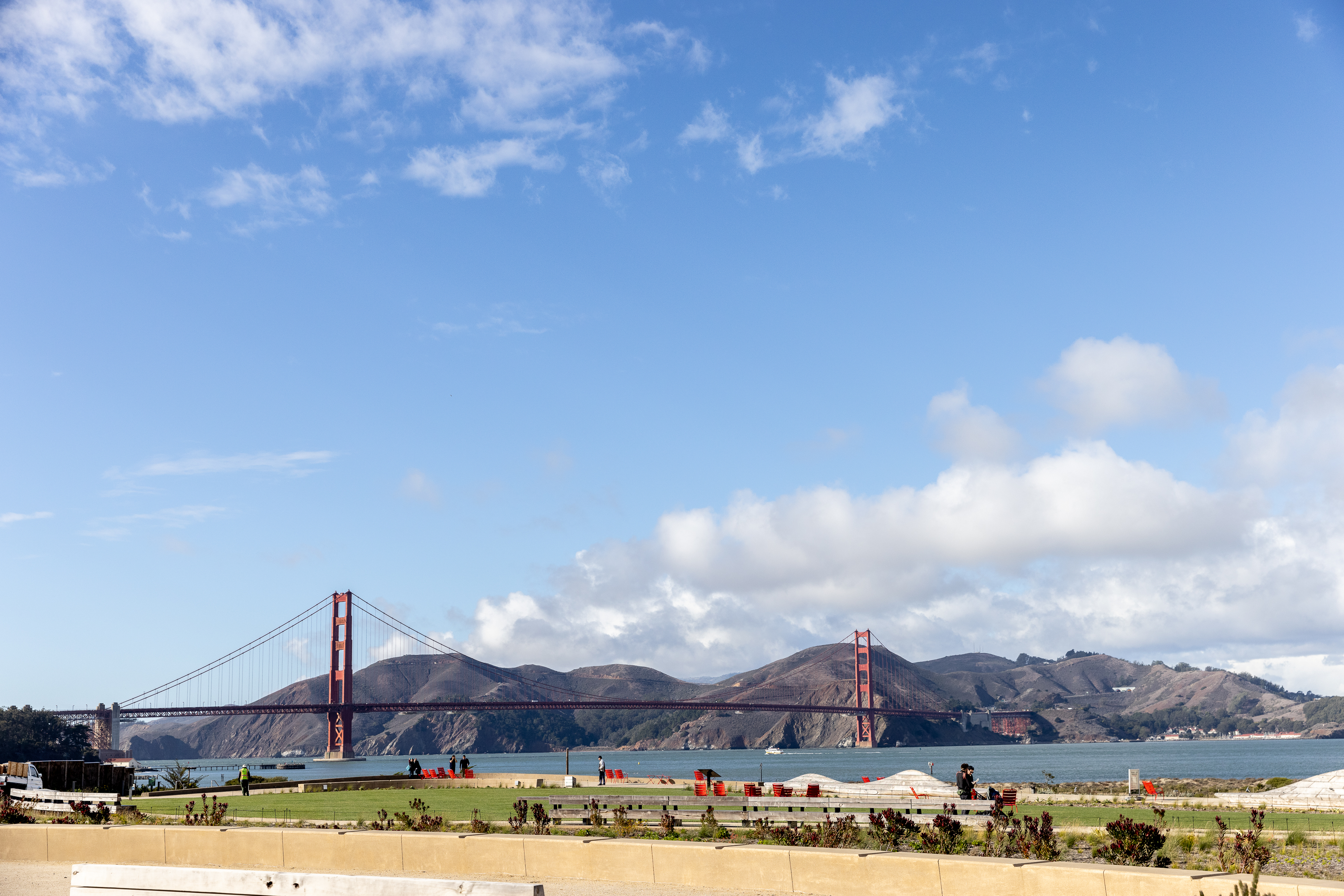
The Golden Gate Bridge connects the San Francisco Peninsula and the Presidio to Marin County across the beautiful Golden Gate Strait, the entrance between the Pacific Ocean and San Francisco Bay for which the landmark was ultimately named.
When was the Golden Gate Bridge built?
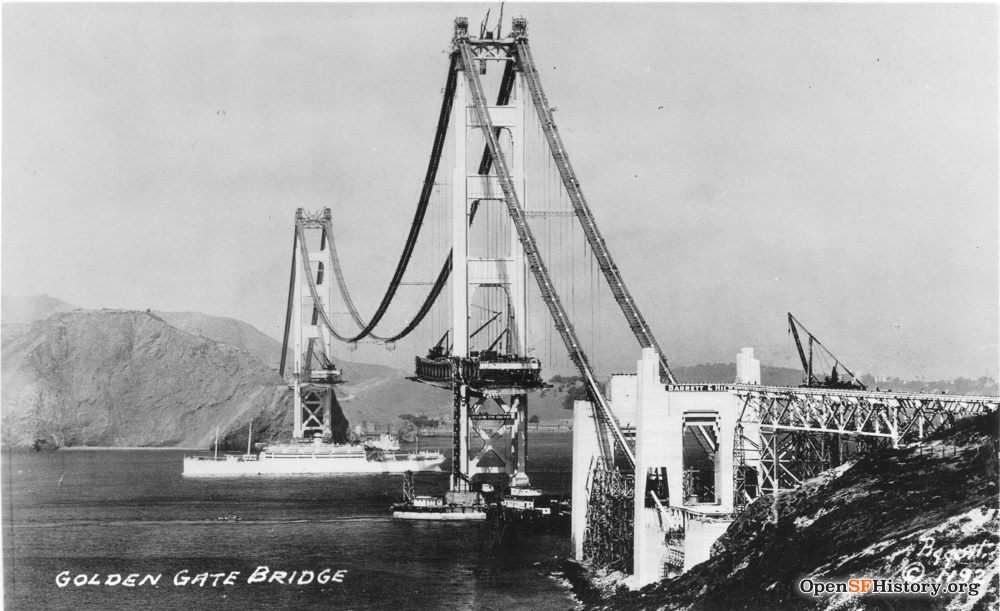
Construction of the Golden Gate Bridge began on January 5, 1933. It was completed on April 19, 1937. A month later, on May 27, 1937, the bridge was officially opened to the public and shortly thereafter welcomed the first motorists across its span.
How much did it cost to build the Golden Gate Bridge?
By the time work was completed, the project had reached a cost of $35 million (the equivalent of $523 million in 2019).
Who designed the Golden Gate Bridge? And who built the Golden Gate Bridge?
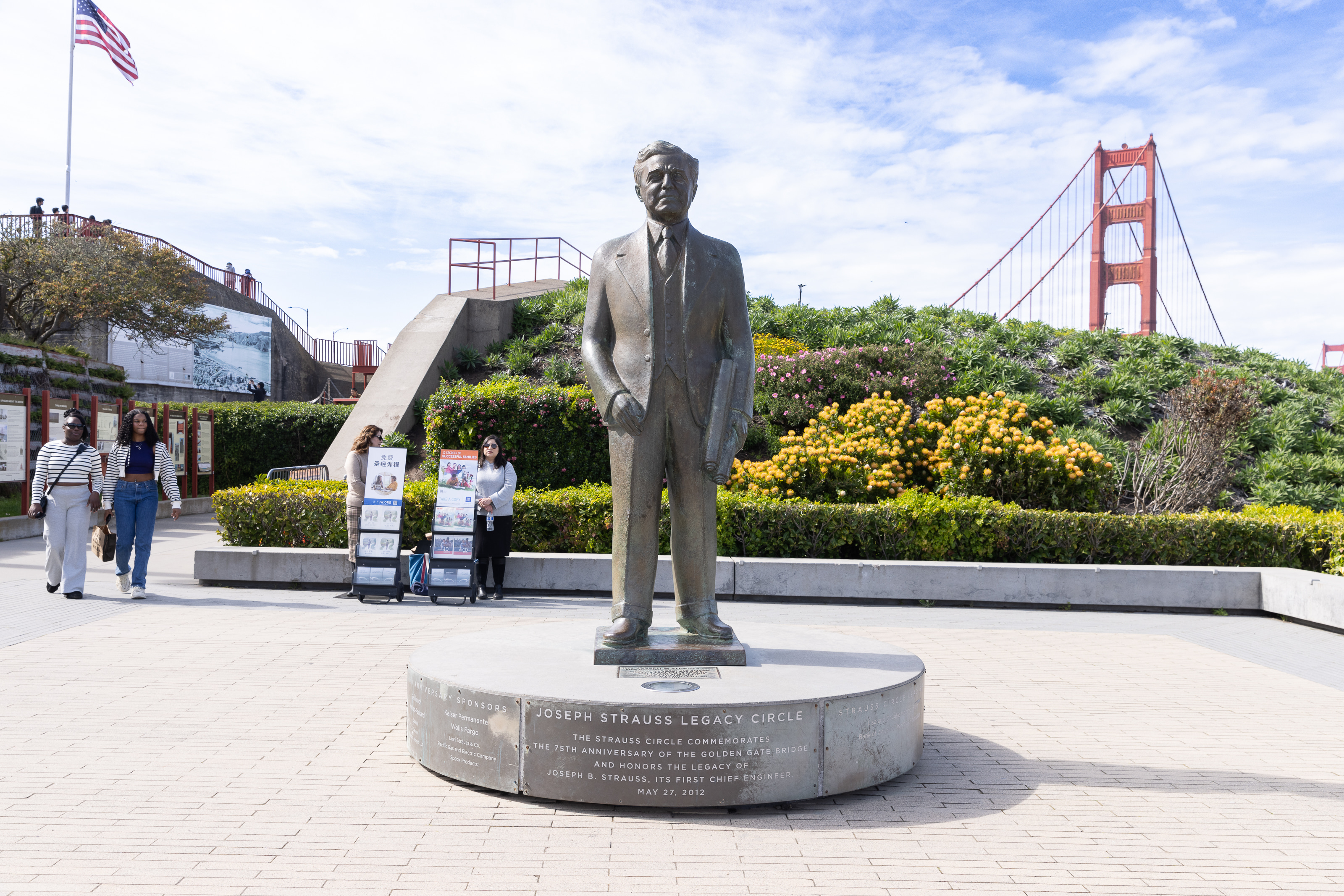
Its aesthetic origins lie with architectural designer Irving Morrow, who is credited with choosing the structure’s signature color, known officially as International Orange. Morrow felt the shade would stand out against the surrounding land, sea, and ever-present fog. Meanwhile, if you’re wondering who designed the Golden Gate Bridge, it was the esteemed trio of Joseph Strauss, Charles Ellis, and Leon Moisseiff.
Carried out by multiple contractors and subcontractors, the massive undertaking of constructing the bridge would take four years. Sadly, owing to incomplete employment records, the names of many of the workers who labored on this project are lost to history.
How was the Golden Gate Bridge built?
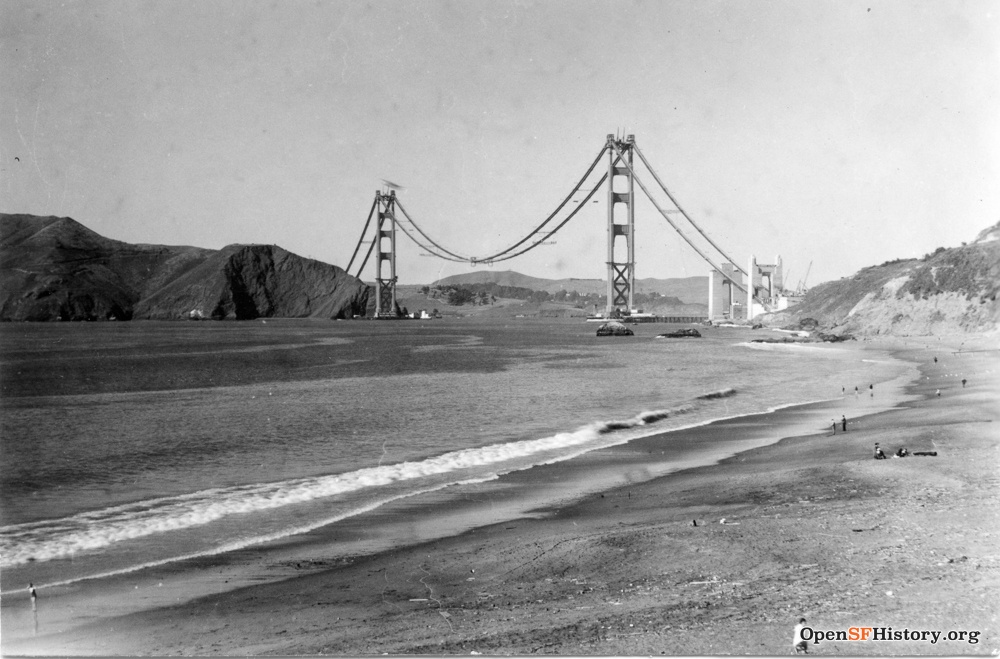
To build a bridge capable of supporting motorists going between San Francisco and Marin County, the first step was to construct huge concrete piers in the San Francisco Bay at each end of the bridge. Then the towers were built, and the cables drawn between them. Finally, sections of roadway were lifted into position and connected to the Marin and San Francisco approach roads.
How long is the Golden Gate Bridge?
When it opened, the Golden Gate Bridge was the longest and tallest suspension bridge in the world. The Golden Gate Bridge measures 8,981 ft in total length, which equates to 1.7 miles (or 2.7 kilometers), making it a true wonder of engineering ingenuity.
How high is the Golden Gate Bridge from the ocean?
If you’ve ever seen a brave construction worker at the top of one of the Golden Gate Bridge’s two towers, you’ve likely wondered just how high the Golden Gate Bridge is. The answer: pretty high. The bridge is 746 feet (228 meters) at its tallest point; the roadway’s height above the water clocks in at 220 feet (67 meters).
How long does it take to walk across the Golden Gate Bridge?
Few things say signature San Francisco experience quite like taking a stroll across the span. From end to end, the Golden Gate Bridge is 1.7 miles long, meaning it takes about 35 minutes (on average) to walk its entire length. Don’t forget that you’ll need to do the reverse trip back if you wish to return to your starting point, which equates to 3.5 miles or roughly 70 minutes of walking.
Can I bike across the Golden Gate Bridge?
Fancy a two-wheeled adventure? Bicycling is permitted across the bridge, but please consult the Golden Gate Bridge District’s website to learn about the hours the east and west sidewalks are open to cyclists. Note: there are no bike rentals at the bridge, but bike rentals are available in the Presidio at one of the Bay Wheels bike share stations or at Sports Basement at Crissy Field.
Where is Golden Gate Bridge parking?
With millions of visitors, it can be hard to park. So, consider taking public transit, biking, or arriving by carshare. Paid Golden Gate Bridge parking lots are next to the Golden Gate Bridge Welcome Center and off Merchant Road.
Where are the best Golden Gate Bridge views? Is there a Golden Gate Overlook?
We’ve curated seven of the best views of the Golden Gate Bridge. Grab a photo at each site!
Is there a Golden Gate Bridge visitor center?
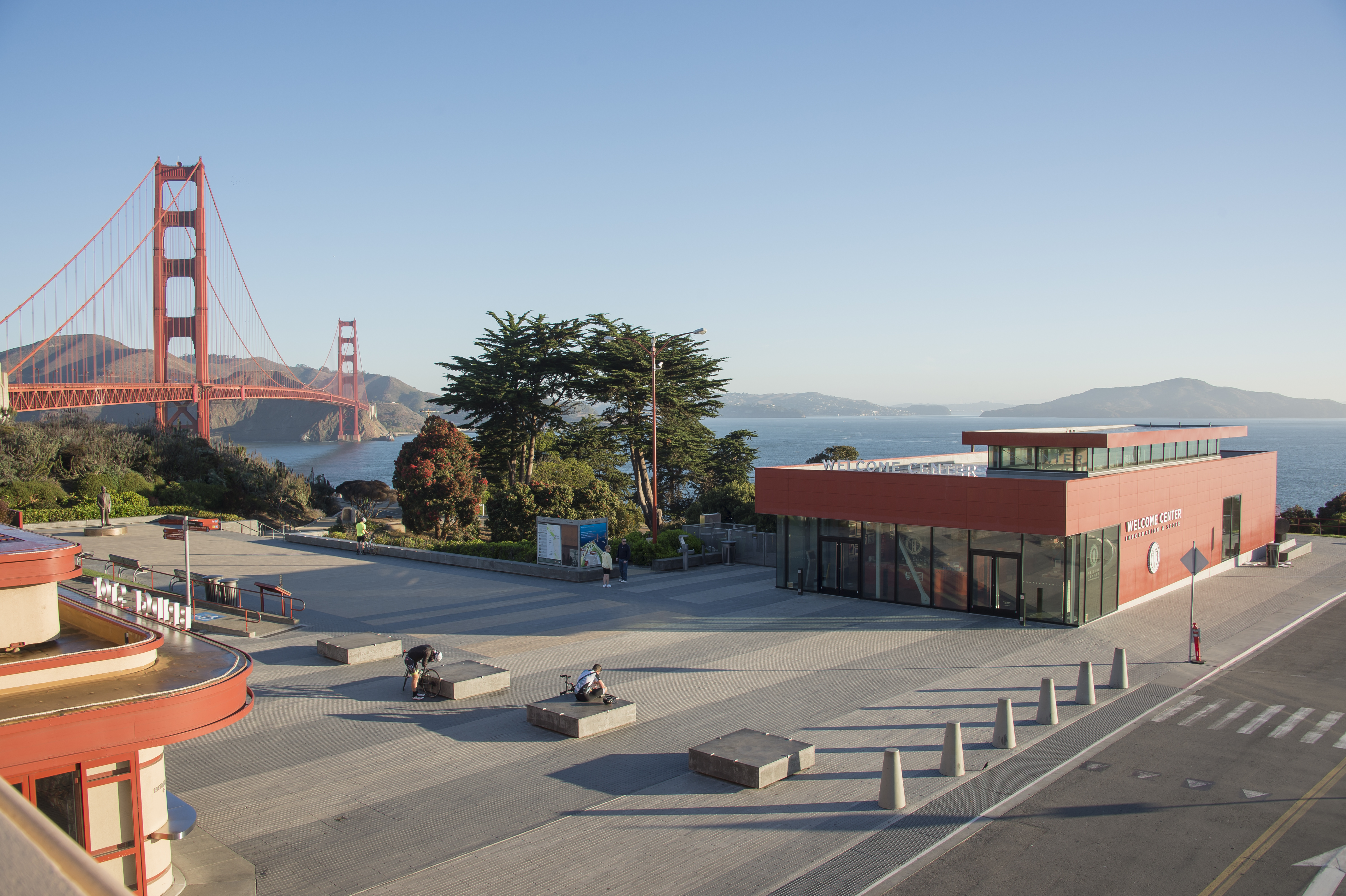
Yes! The Golden Gate Bridge Welcome Center is the best place to start your day. Learn more about the bridge’s history, find fun mementos, and grab food nearby. A fun fact is that the Welcome Center is home to the original 12-foot stainless steel Bridge “test tower” used in 1933.
What celebrations have happened at the Golden Gate Bridge?
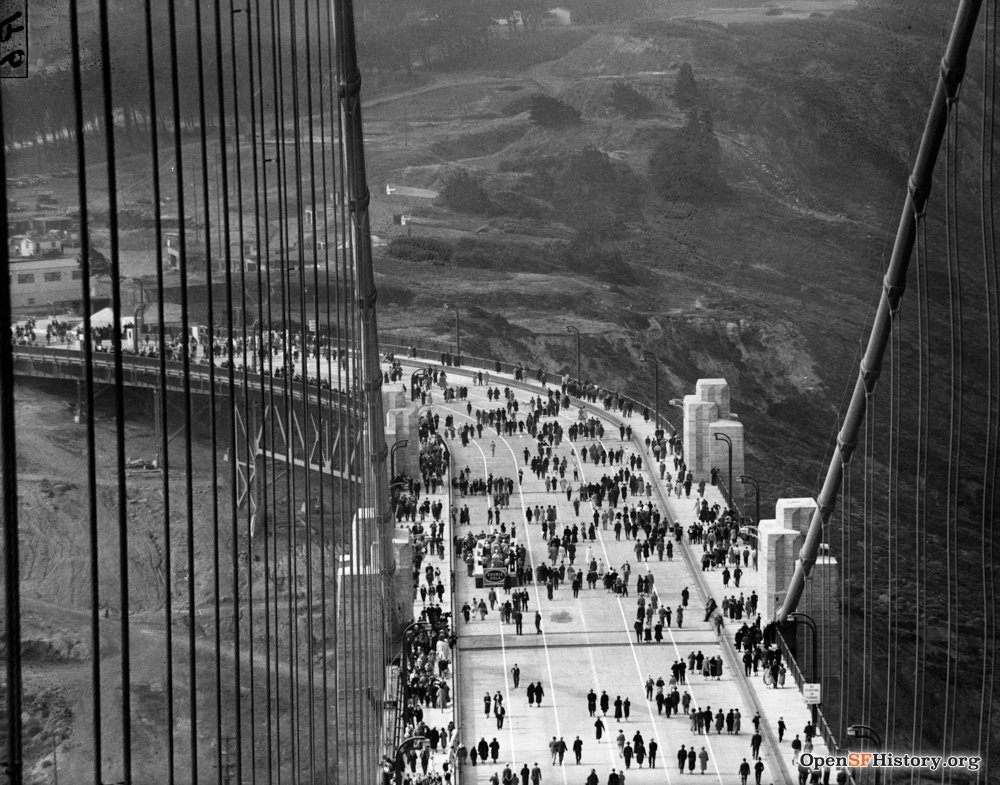
The bridge’s biggest crowds have amassed to celebrate the landmark itself.
The first, of course, was the launch of the bridge to the public on May 20, 1937. Dubbed “Pedestrian Day,” the event saw the entire roadway made available solely to pedestrians from dawn until dusk. By 6 a.m., a queue of 18,000 people was already in line. Throughout the day, officials estimate 15,000 visitors an hour passed through the turnstiles, with a total of roughly 200,000 turning out for the occasion.
The following day, on May 28, it was the automobiles’ turn to experience the bridge’s splendor. President Franklin Delano Roosevelt was given the honors, as he pressed a telegraph key from his office in the White House to declare the span “open to the entire world.”
A half-century later, on May 24, 1987, the Golden Gate Bridge celebrated its 50th Anniversary, drawing an estimated 800,000 people — over ten times the size that officials were anticipating! Incredibly, 300,000 managed to walk across the bridge, flattening its normally arched roadbed in the process. While engineers were momentarily concerned, the Golden Gate Bridge ultimately sustained no lasting damage.
Learn more details about 1937’s Opening Fiesta Week and the 50th Anniversary celebration from the Golden Gate Bridge Highway & Transportation District’s official website.
What movies feature the Golden Gate Bridge?
The bridge has appeared in countless films as a scene-stealing backdrop. Its legacy on the silver screen includes being featured in the classic Bogart noir The Maltese Falcon (1941), Alfred Hitchcock’s masterful Vertigo (1958), and the Nicholas Cage action film The Rock (1996).
The bridge has also seen some hard times on film. Starting with 1955’s It Came from Beneath the Sea, the Golden Gate Bridge has been destroyed by an octopus, been partially toppled by an earthquake (1978’s Superman), been transported and sunk by telepathic powers (2006’s X-Men: The Last Stand), fallen prey to a giant lizard monster (2014’s Godzilla), been briefly overtaken by angry, sentient simians (2011’s Rise of the Planet of the Apes), and been left for scraps in the wake of a mega-tsunami (2015’s San Andreas).
Planning Your Golden Gate Bridge Adventure at the Presidio
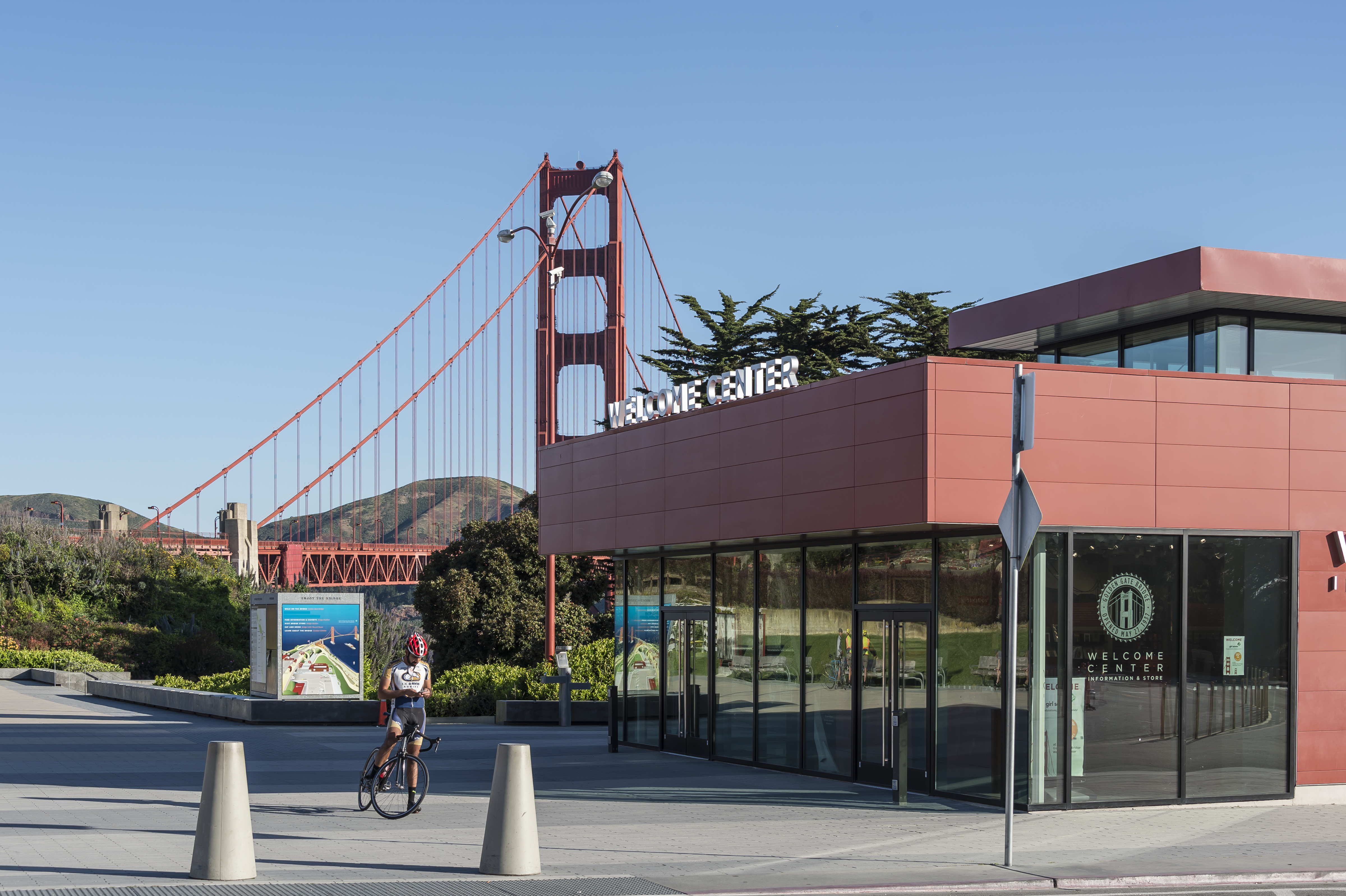
Now that you’re armed with all the facts, it’s time to experience the beauty and wonder of the Golden Gate Bridge for yourself! Accessible by public transit and the FREE Presidio GO Shuttle, there’s also a paid parking lot next to the Golden Gate Bridge Welcome Center and a free lot on the bridge’s north side.
For great photo ops, try popular Golden Gate Bridge viewpoints, like Battery East Vista, the Golden Gate Overlook, and the Pacific Overlook.
The area of the Presidio around the bridge is also rich with trails, perfect for all outdoor enthusiasts. Starting from the Golden Gate Bridge, visitors will find connections to the California Coastal Trail, the Bay Area Ridge Trail, the SF Bay Trail/Golden Gate Promenade, and the Presidio Promenade, collectively linking San Francisco’s iconic landmark with the rest of the Presidio’s abundant offerings.
For more ideas, visit the Itinerary section.
